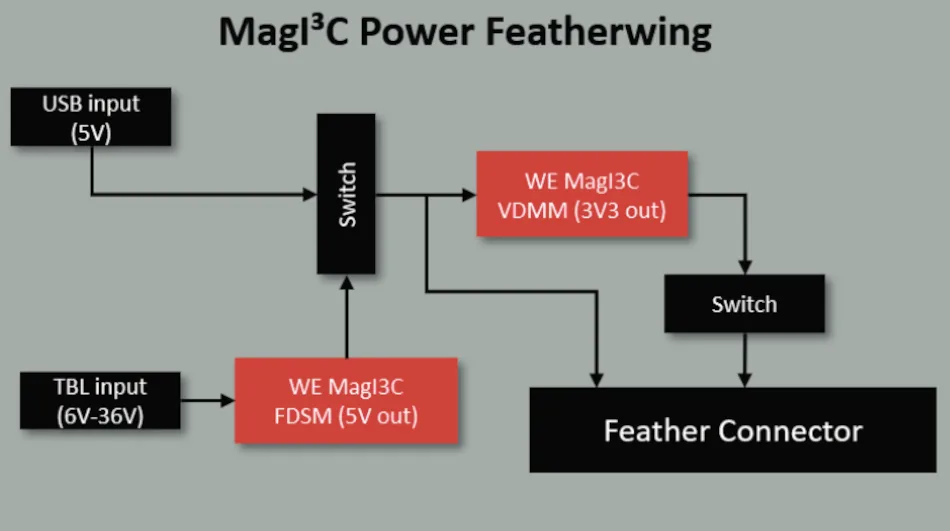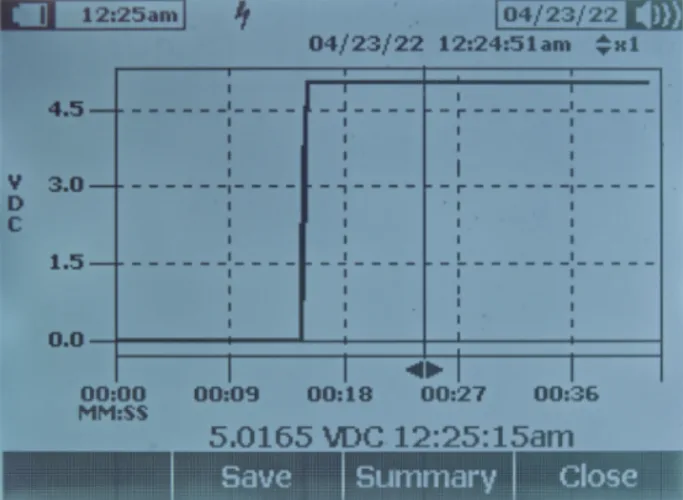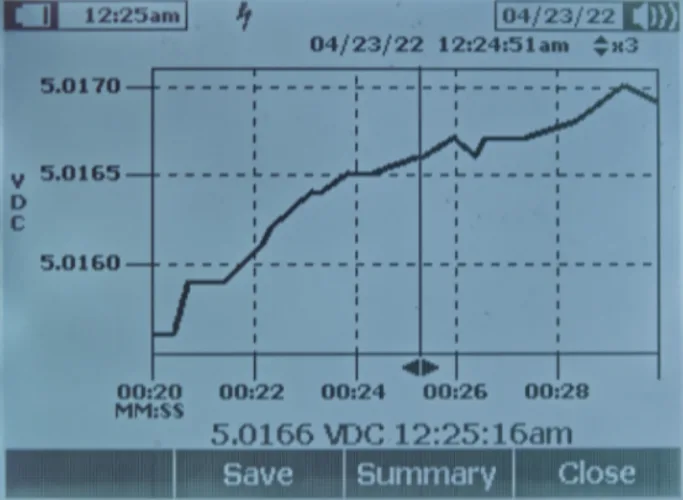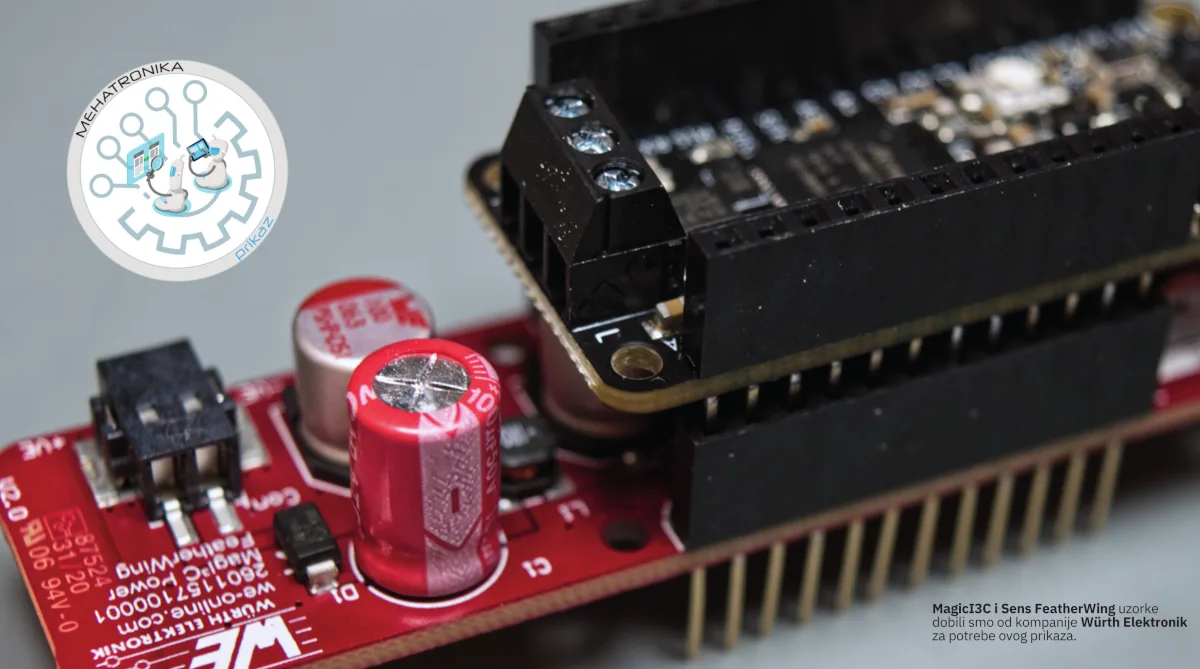Würth MagI3C FeatherWing
This power supply FeatherWing packs industrial PSU technology in an affordable format which is extremely easy-to-use. The voltage regulators here are impressive - able to operate in seriously challenging environments.
Pros
- Extremely stable 5V and 3.3V output
- Takes in a range of industrial support voltages
Cons
- A tad bit (but understandably) expensive
Feather is Adafruit’s system of development boards, available in a wide range of MCUs and peripheral options. FeatherWings are what they call the add-on “shield” type boards that stack above or below the main board to extend its capabilities.
Wurth Elektronik created four of these add-on boards to showcase some of their industrial-grade technologies in an approachable, easy-to-use factor. Today, we’re looking at the first of these – the Würth MagI3C FeatherWing.
Normally, Feather boards are powered by either a USB connection or with a battery (there’s on-board charging circuitry, too). There’s also the option of supplying 5V directly to the GPIO header. While this is more versatility in the power department than most competitors, it’s still a far cry from being industry-ready.

This is where the Würth MagI3C FeatherWing comes in. Powered by the namesake MagI3C modules, it offers a stable output voltage in a wide variety of input scenarios.
Digging a bit deeper into the inner workings of the module, we see some interesting chips populating the circuit. Firstly, the MagI3C FDSM (a fixed output voltage step-down regulator) takes any input voltage between 6 V and 36 V and brings it down to 5 V. An additional VDMM (variable output voltage step-down regulator) brings those 5 V further down to a pre-set 3.3 V. This second chip can be enabled or disabled via an on-board switch, and is meant for FeatherWings that require 3.3V power. The power is delivered to the MagI3C board via a no-screw terminal, which accepts wires of various thickness. There’s also a USB connector on the side, allowing for power delivery through a standard microUSB cable.
According to the manufacturer’s data sheet, the MagI3C modules used for this FeatherWing are capable of delivering up to 1 A current, which is plenty for almost any microcontroller application. The modules used also offer thermal-shutdown features, as well as over-current and under-voltage lockout protection, among others.


In our tests, we found out that the stability of the module’s output is excellent. Measuring the voltages on an unloaded module, our trusty Fluke 289 reported a stable 5.0160 V, ±0.01 V as the input voltage linearly swept up 7-32 V. With an unchanging input voltage, the output was perfectly stable.
This is stunning performance. It would have been enough to have a DC-DC converter which performs well under a range of unchanging voltages, but thanks to the hugely versatile MagI3C modules, this little PSU manages to overcome a pretty rough test with flying colours.
It’s worth noting that all of the components used are Wurth’s own high quality parts – down to even the connectors. We’re sure this greatly improves reliability and performance.
Needless to say, we’re quite impressed with this excellent bit of engineering. While seemingly simple at first glance, this FeatherWing truly enhances the boards it was made for – by letting them be powered using an industrial array of voltages, while offering an array of protection features. Retailing for $66, the MagI3C-powered board is truly the best industrial PSU for the Feather ecosystem.
More informations about Würth MagI3C FeatherWing: https://www.we-online.com/catalog/en/VDRM_FEATHERWING
- Miniware TS21 review - 07/11/2025
- teenage engineering OP-XY review: after dark - 06/01/2025
- Mehatronika interviews: Rodrigo Sim - 05/17/2025
